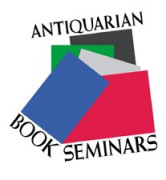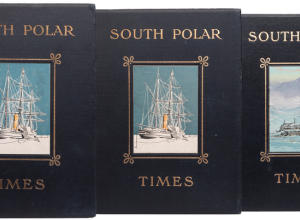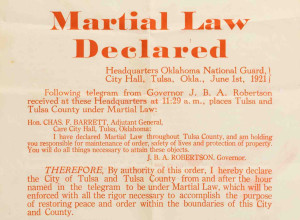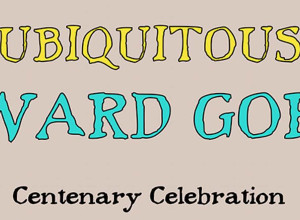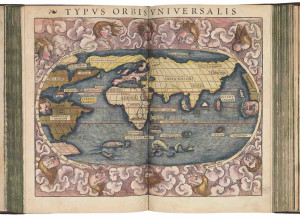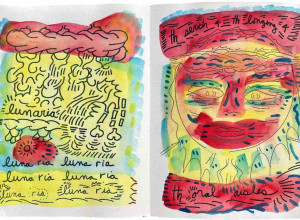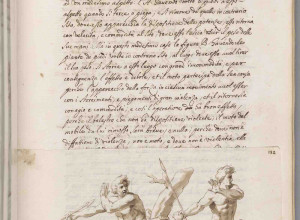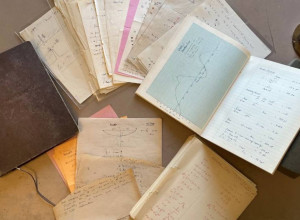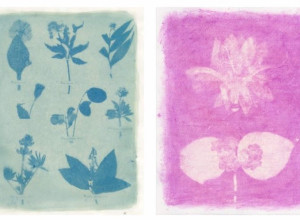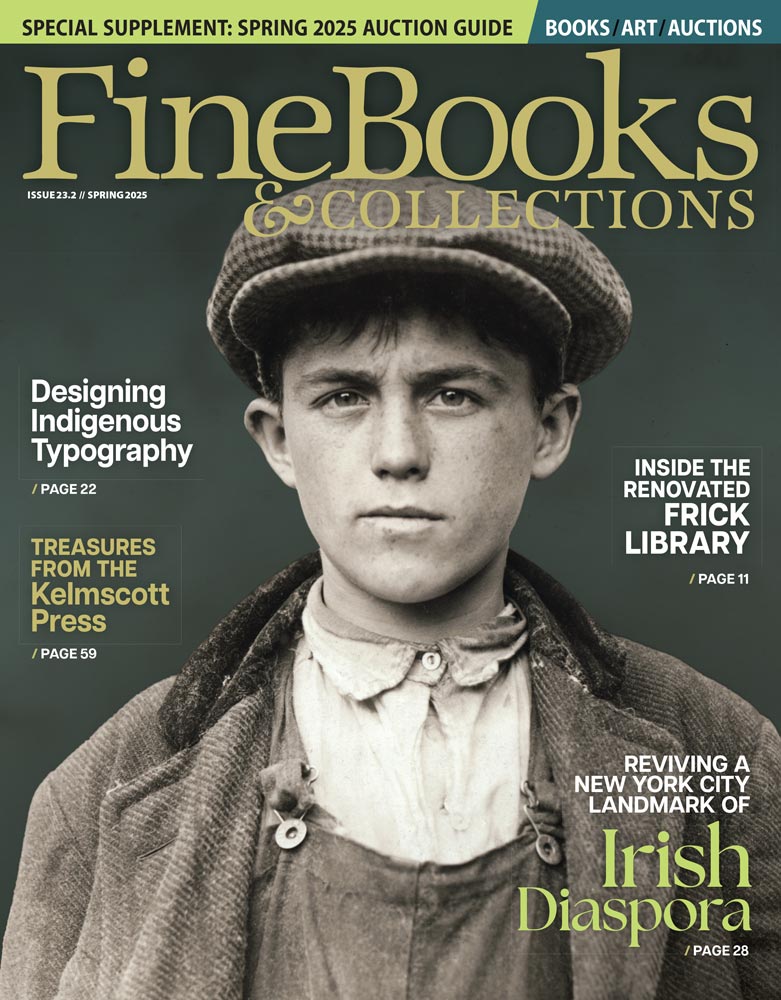Art Institute of Chicago Features 'Artists and Alternative Magazines'
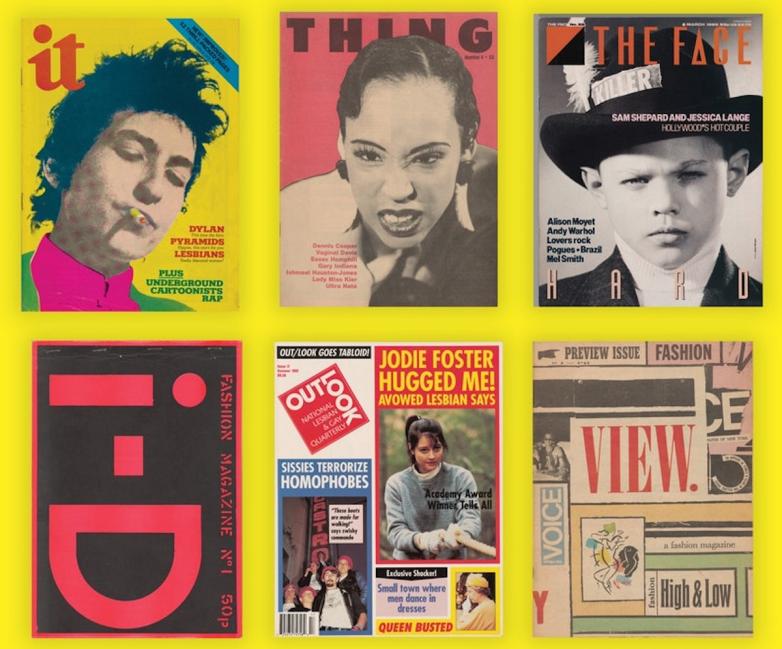
Cover of IT (International Times) magazine, March 9–23, 1972. Private collection. Cover of Thing: She Knows Who She Is magazine, Spring 1991. The Art Institute of Chicago (AIC), Ryerson and Burnham Libraries Special Collections, purchased with funds provided by Eric Ceputis and David Williams. ©THING Magazine. Cover of The Face magazine, March 1985. The AIC, Ryerson and Burnham Libraries Special Collections. Photography ©Jamie Morgan. Cover of i-D magazine, September 1980. The AIC, Ryerson and Burnham Libraries Special Collections. Cover of OUT/LOOK magazine, Summer 1992. Art direction by Skylar Fein. Private collection. ©E.G. Critchton and Jeffrey Escoffier, founders, OUT/LOOK Magazine. Cover of View: A Fashion Magazine, April 1985. The AIC, Ryerson and Burnham Libraries Special Collections. ©Yolanda Cuomo.
Chicago — Emerging on the heels of late 60s political movements, a new form of alternative magazine amplified marginalized voices, redefining entrenched mainstream representations and forever changing the magazine industry. From the 70s through the mid-90s, American and British photo-driven publications such as The Face, i-D, Think Ink, and Out/Look became spaces for artistic experimentation that would in time reshape popular culture. Over 130 issues of those magazines, along with photographs and time-based media works by artists featured in their pages, are on view in Subscribe: Artists and Alternative Magazines, 1970-1995 from December 11, 2021 to May 2, 2022. The exhibition coincides with the Art Institute’s acquisition of rare issues of Blitz, i-D, The Face, Thing/Think Ink, and View (later Vue) that will be accessible to the public through the Ryerson Library Special Collections.
Pairing the high production standards of leading publications such as Vogue and Life with the element of collage in zines and the text/image provocations of underground newspapers, alternative magazines introduced a hybrid publishing model. They prized formal experimentation and a collaborative approach to making, simultaneously challenging mainstream definitions of culture and belonging and generating new affiliations across identities. Many artists and writers, including Hilton Als and Darryl Turner, Wolfgang Tillmans, Laurie Simmons, Liz Johnson Artur, and Lyle Ashton Harris, were drawn to alternative magazines as a generative space to work out ideas, and these publications became central to their aesthetic. In turn, artists such as Nan Goldin, Vaginal Davis, and Malcolm McLaren translated key ideas borrowed from magazine layouts into time-based media formats. Meanwhile, some makers founded their own publications. The Chicago-based Black and queer run publication Thing commissioned fashion stories alongside coverage of a broad range of cultural innovations, from the Black Arts Movement to punk and house music.
Subscribe brings together the alternative magazines that became a wellspring for cultural transformation: Think Ink (later Thing), Andy Warhol’s Interview, feminist zine Ben is Dead, Out/Look, BOMB, Vibe, Blitz, The Face, i-D, underground newspapers such as IT (International Times), View (later Vue), Rags, and others. Installed alongside these publications are works that reflect the cross pollination of influence and inspiration: Davis and Glenn Bevario’s One Man Ladies (1996), Johnson Artur’s Untitled (2016) video drawn from her Black Balloon Archive (1991), and—on view at the Art Institute for the first time in over a decade—Goldin’s slide-based work The Ballad of Sexual Dependency (1979/2001), which incorporates images from fashion shoots commissioned for View (later Vue) Magazine. “Found fashion” often served as an entry point to social spaces, from Rags’ “On the Street” section to i-D’s “Straight Up” portraits, celebrating styles born on the street. Shown here, Jamel Shabazz’s photographs of Black and LatinX communities and Nicola Tyson’s images of a London gay and lesbian club demonstrate how artistic practices, including the practice of circulation, later evolved into photographic genres in magazines such as The Source and Blitz.
“Rather than attempt a complete survey, Subscribe focuses on particular moments of innovation,” noted visiting co-curator Solveig Nelson. “One important arc is how queer content and perspectives became central to magazines as art objects and as spaces. Another is the way that many artists pushed back against the limitations of magazines.” Visiting co-curator Michal Raz-Russo added, “These magazines fostered networks that were vitally important for rising artists at the time. By underscoring a collaborative approach, they were among the most innovative and groundbreaking spaces for discussions about art, culture, and politics.”
For over two decades, photo-driven alternative magazines, and the artists working within their pages, built a platform for the creative underground, centering communities no longer content with their outsider status. In doing so, they revolutionized print media.






